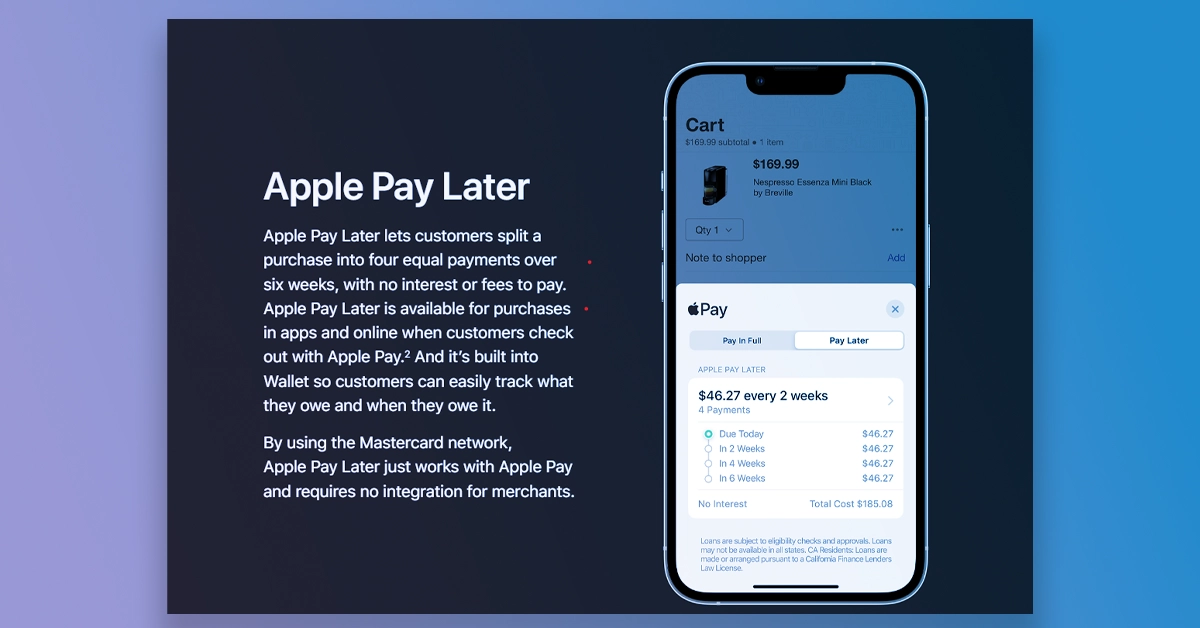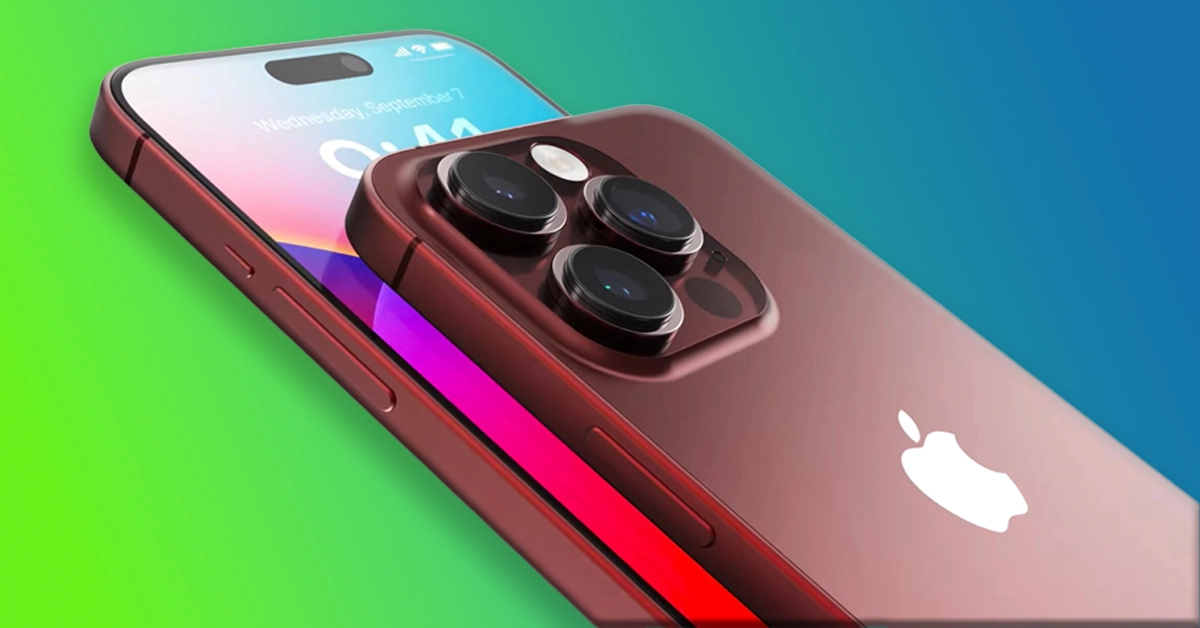
Apple Buy Now Pay Later with Zero-Interest Loans launched in US
Snehil
- 0
Tech giant Apple has announced the launch of its much-anticipated Buy Now, Pay Later (BNPL) program in the US. This move is seen as a challenge to established firms such as Affirm and Klarna. Apple Buy Now Pay Later was unveiled in June at the company’s developers conference and will enable select US consumers to use the finance tool through the Wallet function of their iPhones.
How does Apple Buy now Pay Later work?
The service offers zero-interest loans ranging from $50 to $1,000, which can be paid back in four payments spread over six weeks. Apple’s BNPL program is expected to be integrated into the iPhone operating system, which accounts for over 50% of smartphones in the US.
To facilitate the program, Goldman Sachs, which partnered with Apple to launch its credit card in 2019, will provide access to Mastercard’s network since Apple lacks a license to issue payment credentials directly.
Apple diversifying its services
Apple’s move into finance has raised concerns from Wall Street and regulators. JPMorgan CEO Jamie Dimon has described Apple as a “bank,” saying, “If you move money, hold money, manage money, lend money, that’s a bank.” The Director of the Consumer Financial Protection Bureau, Rohit Chopra, has also expressed the need for careful examination of the potential impacts of Big Tech’s entry into the BNPL market. Currently, Apple is the only major tech company to have launched a BNPL product in the United States.
Apple’s services division, which includes its financing program, iCloud storage, warranties, and App Store purchases, accounted for about $78bn or a fifth of its revenue last year. With margins of over 70%, the services division is part of Apple’s efforts to reduce its reliance on hardware sales and encourage users to stay within its ecosystem of products and services. Apple is also focussing on a mid-range phone, the iPhone SE 4, due to be released next year.
Although BNPL firms such as Klarna, Afterpay, and Affirm pioneered the model, they have struggled to maintain their momentum amid an economic slowdown and rising interest rates. However, sustained increases to interest rates may pose a risk to the BNPL business model.
Apple Pay Later is enabled through the Mastercard Installment program, and the company plans to begin inviting some users to access a pre-release version of the service, with plans to offer it to all eligible users in the coming months.
FAQ’s
What is Apple’s Buy Now, Pay Later program?
Apple’s Buy Now, Pay Later (BNPL) program is a finance tool that allows select US consumers to make purchases with zero-interest loans ranging from $50 to $1,000, which can be paid back in four payments spread over six weeks.
How does the Apple Pay Later program work?
The Apple Pay Later program is integrated into the Wallet function of iPhones, and eligible users can access it through the Mastercard Installments program. Users can choose to make purchases with the Buy Now, Pay Later option, which will allow them to spread the cost over four payments with no interest.
How is Apple’s move into finance being received by Wall Street and regulators?
Apple’s move into finance has drawn attention from Wall Street and regulators. JPMorgan CEO Jamie Dimon has described Apple as a “bank,” while the Director of the Consumer Financial Protection Bureau, Rohit Chopra, has expressed the need for careful examination of the potential impacts of Big Tech’s entry into the Buy Now, Pay Later (BNPL) market.
How does Apple’s services division fit into the company’s overall strategy?
Apple’s services division, which includes Apple’s financing program, iCloud storage, warranties, and App Store purchases, accounted for about $78bn or a fifth of its revenue last year. With margins of over 70%, the services division is part of Apple’s effort to reduce its reliance on hardware sales and encourage users to stay within its ecosystem of products and services.
What impact could rising interest rates have on the BNPL industry?
While BNPL firms such as Klarna, Afterpay, and Affirm pioneered the model, they have struggled to maintain their momentum amid an economic slowdown and rising interest rates. However, concerns have been raised for the sector as sustained increases to interest rates may pose a risk to the BNPL business model.


